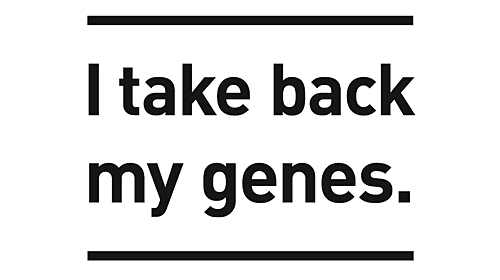
Most teenagers don't sit around contemplating the need for genetic testing. They may not even know the purpose of genetic testing. That all changed for me when I was 13, shortly after my baby brother celebrated his first birthday. He was diagnosed with a disease called (SMA), a genetic motor neuron disease that affects the muscles that control crawling, walking, head and neck control, and swallowing. In order to inherit SMA, both parents of a child have to be carriers of a mutated SMN1 gene. If both parents are carriers, their child has a one in four chance of being affected with SMA. While my sister and I are perfectly healthy, there is a chance that we could both be carriers of the mutated SMN1 gene. My brother's doctors have strongly advised that, should we choose to have children, our partners should at least be tested to see if they are carriers for the gene. It was the first time the concept of genetic testing came across my radar, but it certainly wouldn't be the last.
A few years later, my paternal grandmother was diagnosed with stage-four ovarian cancer. While she lived longer than most patients in that advanced stage, it was heart-wrenching to watch her suffer. I couldn't help but wonder what her chances would have been if they had only diagnosed her sooner. When I learned it was hereditary and that her mother had suffered from ovarian cancer as well, it frightened me even more. It was around this time that I learned of BRCA1 and BRCA2 testing, the genetic tests that can determine a woman's chance of ovarian and breast cancer (the cancer that has plagued the other side of my dad's family). Both of my dad's sisters were encouraged to have these tests done, which seemed like the obvious solution given the high probability they could have cancer one day too. Unfortunately, as a result of the gene patents, there is only one lab that can do the testing and the tests cost too much.
What does it mean when a gene is patented, exactly? It means that a genetic sequence that occurs naturally in the human body is essentially controlled by a private company. Anybody who wants to use the gene in tests, studies or other applications can face a patent infringement lawsuit. In fact, it turns out that nearly 20 percent of human genes are patented, including the BCRA1, BCRA2, SMN1, and many other genes. This leads to expensive testing, as the companies with the patents can hold the sole right to test for the mutations in these genes. For those with inadequate insurance, like my aunts, or no insurance at all, it virtually denies them any access to this potentially life-saving tool.
For me, genetic testing means a lot. It turns out the SMN1 gene is patented and . And while I know a lot about my medical history on my dad's side, my mom is adopted. That means an entire half of my medical history — including any hereditary disease to which I may be susceptible — is unknown. Those tests would give me the opportunity to help fill in the blanks, so that I can make better medical decisions for myself and my family.
Unfortunately, many gene patents limit access to these vital tests, which is why I'm standing with the ACLU to take back my genes. Stand with me by sharing your own story and clicking here to learn more about the ACLU's case on gene patenting.
Learn more about gene patents: Sign up for breaking news alerts, , and .


